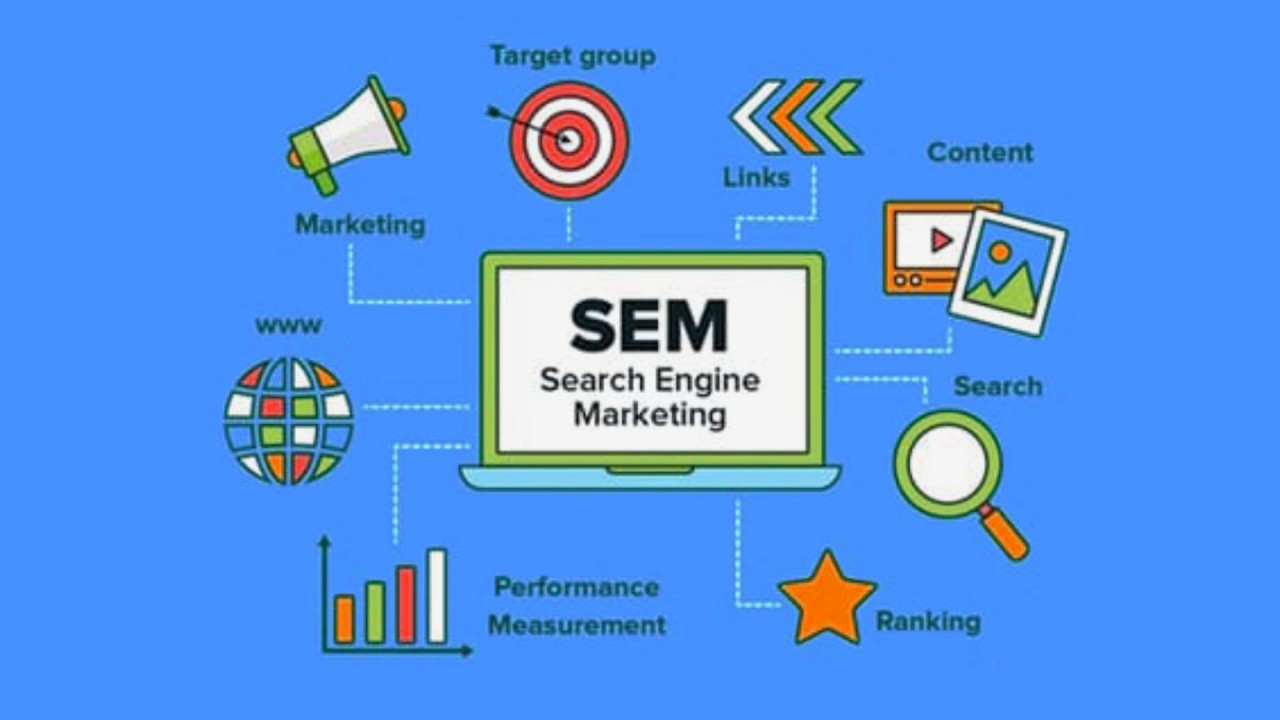
Maximizing Online Presence: The Crucial Role of Search Engine Marketing (SEM) in Digital Marketing
In the dynamic landscape of digital marketing, where businesses are constantly vying for online visibility, Search Engine Marketing (SEM) has emerged as a strategic cornerstone. SEM plays a pivotal role in connecting businesses with their target audience, driving website traffic, and achieving measurable results. This article explores the intricacies of SEM, its components, and its profound impact on digital marketing strategies.
Understanding SEM:
Search Engine Marketing encompasses a set of online marketing techniques aimed at increasing a website’s visibility in search engine results pages (SERPs) through paid advertising. SEM primarily involves Pay-Per-Click (PPC) campaigns, where advertisers bid on specific keywords to have their ads displayed prominently when users search for relevant terms.
Key Components of SEM:
-
Keyword Research: At the core of SEM lies meticulous keyword research. SEM professionals identify and target specific keywords relevant to their business, products, or services. Comprehensive keyword analysis ensures that ads are displayed to users actively seeking information or solutions related to the advertiser’s offerings.
-
Ad Creation: Crafting compelling ad copy is crucial in SEM. Advertisers need to create concise and persuasive ads that resonate with the target audience. Ad formats can include text ads, display ads, and product listings, each tailored to capture the attention of users and entice them to click through.
-
Bid Management: SEM operates on a bidding system, where advertisers compete for ad placements based on the keywords they target. Effective bid management involves strategically setting bid amounts to secure optimal ad positions. Advertisers must balance bid amounts with ad relevance and landing page quality to achieve cost-effective results.
-
Landing Page Optimization: Beyond attracting clicks, SEM success hinges on what happens after users reach the website. Landing page optimization involves creating seamless and relevant experiences for users, ensuring that the content aligns with the ad and encourages desired actions, such as making a purchase or filling out a form.
-
Analytics and Reporting: Data-driven decision-making is a fundamental aspect of SEM. Advertisers leverage analytics tools to monitor and analyze campaign performance in real-time. Key metrics such as Click-Through Rate (CTR), Conversion Rate, and Return on Ad Spend (ROAS) provide insights for ongoing optimization and future campaign strategies.
Benefits of SEM in Digital Marketing:
-
Immediate Visibility: One of the primary advantages of SEM is its ability to provide instant visibility. Ads can be displayed at the top of search results as soon as a campaign is launched, ensuring immediate exposure to users actively searching for relevant information.
-
Targeted Advertising: SEM allows for precise targeting based on factors such as demographics, location, and device. Advertisers can tailor their campaigns to specific audience segments, ensuring that their messages reach those most likely to convert.
-
Measurable ROI: SEM provides a transparent and measurable Return on Investment (ROI). Advertisers can track the performance of their campaigns in real-time, allowing for data-driven adjustments to maximize the effectiveness of their advertising spend.
-
Flexibility and Control: SEM campaigns offer flexibility and control over various aspects, including budget allocation, ad scheduling, and geographic targeting. This adaptability allows advertisers to refine their strategies based on changing business goals and market dynamics.
Conclusion:
In the ever-evolving digital landscape, where consumers turn to search engines for information and solutions, SEM stands as a powerful ally for businesses. By strategically leveraging paid advertising, SEM empowers brands to reach their target audience at the right moment, drive relevant traffic, and achieve tangible results. As technology continues to advance and consumer behavior evolves, SEM will remain a critical component of successful digital marketing strategies, providing businesses with the tools to navigate and thrive in the competitive online marketplace.
Read More: SEM in Digital Marketing


